
Akko: A Mosaic of History and Culture by the Mediterranean
Akko, also known as Acre, is a city that invites you to step back in time while enjoying the scenic beauty of the Mediterranean coast. With a rich history that dates back over 4,000 years, Akko has been a melting pot of cultures, empires, and civilizations. From the ancient Phoenicians to the Crusaders, and from the Ottomans to the British Mandate, each era has left its mark on the city, making it a fascinating destination for history buffs and casual tourists alike. One of the must-visit sites in Akko is the Old City, a UNESCO World Heritage Site. Here, you can wander through narrow alleys lined with ancient stone buildings and discover hidden gems like the Crusader Fortress, the Al-Jazzar Mosque, and the Templar Tunnel. The Old City’s vibrant markets offer a sensory overload with their mix of spices, textiles, and crafts, providing a perfect opportunity to pick up unique souvenirs. For those interested in maritime history, the Akko Marina offers a picturesque setting by the sea. You can take a boat tour to see the city from a different perspective or simply relax at one of the waterfront cafes. The city also boasts several museums, including the Turkish Bath Museum and the Underground Prisoners Museum, which provide deeper insights into Akko’s multifaceted past. Food lovers will find Akko’s culinary scene to be a delightful blend of Middle Eastern flavors. Don’t miss out on trying local specialties like hummus, falafel, and fresh seafood. Many restaurants are housed in historic buildings, offering not just a meal but a dining experience steeped in history. Akko is a city where the past and present coexist harmoniously. Whether you are a history enthusiast, a foodie, or someone looking to soak up the coastal charm, Akko promises an enriching and memorable visit.
Local tips in Akko
- Wear comfortable walking shoes to explore the cobbled streets and alleys of the Old City.
- Visit the Old City early in the morning or late in the afternoon to avoid crowds and enjoy a more peaceful experience.
- Use local guides for a more in-depth understanding of Akko’s historical sites.
- Try the local hummus at one of the renowned hummus joints in the Old City for an authentic culinary experience.
- Check the local calendar for festivals and events to enhance your visit with cultural activities.
Neighbourhoods in Akko
Akko: A Mosaic of History and Culture by the Mediterranean
Akko, also known as Acre, is a city that invites you to step back in time while enjoying the scenic beauty of the Mediterranean coast. With a rich history that dates back over 4,000 years, Akko has been a melting pot of cultures, empires, and civilizations. From the ancient Phoenicians to the Crusaders, and from the Ottomans to the British Mandate, each era has left its mark on the city, making it a fascinating destination for history buffs and casual tourists alike. One of the must-visit sites in Akko is the Old City, a UNESCO World Heritage Site. Here, you can wander through narrow alleys lined with ancient stone buildings and discover hidden gems like the Crusader Fortress, the Al-Jazzar Mosque, and the Templar Tunnel. The Old City’s vibrant markets offer a sensory overload with their mix of spices, textiles, and crafts, providing a perfect opportunity to pick up unique souvenirs. For those interested in maritime history, the Akko Marina offers a picturesque setting by the sea. You can take a boat tour to see the city from a different perspective or simply relax at one of the waterfront cafes. The city also boasts several museums, including the Turkish Bath Museum and the Underground Prisoners Museum, which provide deeper insights into Akko’s multifaceted past. Food lovers will find Akko’s culinary scene to be a delightful blend of Middle Eastern flavors. Don’t miss out on trying local specialties like hummus, falafel, and fresh seafood. Many restaurants are housed in historic buildings, offering not just a meal but a dining experience steeped in history. Akko is a city where the past and present coexist harmoniously. Whether you are a history enthusiast, a foodie, or someone looking to soak up the coastal charm, Akko promises an enriching and memorable visit.
When is the best time to go to Akko?
Iconic landmarks you can’t miss
Knights' Halls, Old Akko
Step into history at the Knights' Halls in Old Akko, a captivating blend of medieval architecture and rich stories, perfect for every traveler.
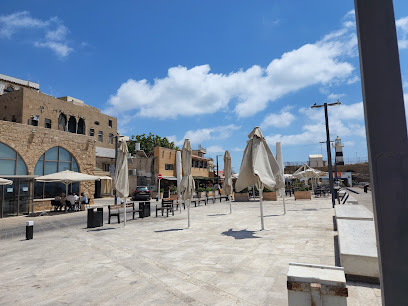
Templar's Tunnel
Discover the ancient secrets of Templar's Tunnel in Acre, a captivating historical landmark that unveils the mysteries of the Crusader era.
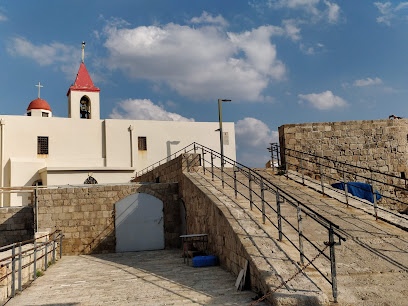
The Old City
Discover the rich history and vibrant culture of The Old City in Acre, a UNESCO World Heritage Site filled with ancient architecture and local flavors.
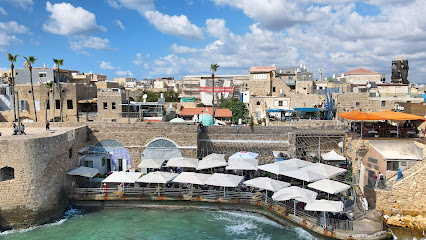
Treasures in the Walls Museum
Explore Acre's vibrant history at Treasures in the Walls Museum, showcasing the rich cultural heritage through captivating exhibits and artifacts.
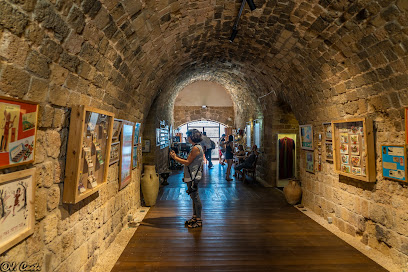
Citadel of Acre
Explore the Citadel of Acre, a UNESCO World Heritage Site, where history unfolds amidst stunning architecture and breathtaking views of the Mediterranean.
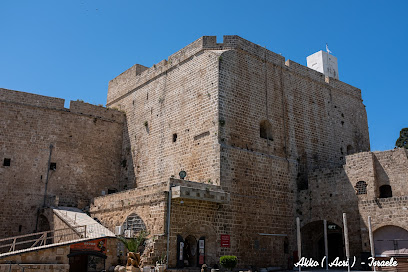
Or Torah Synagogue
Explore the Or Torah Synagogue in Acre, a stunning blend of spirituality and artistry adorned with captivating mosaics reflecting centuries of Jewish heritage.
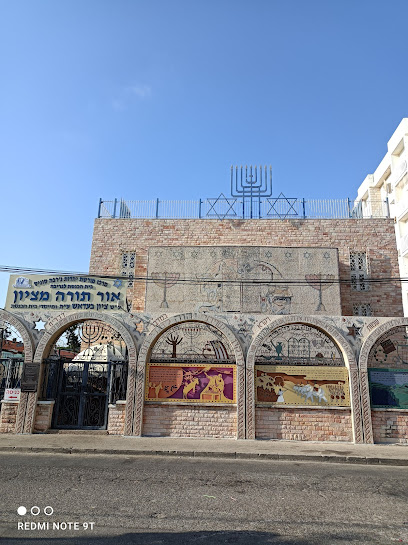
Al-Jazzar Mosque
Discover the architectural beauty and historical significance of Al-Jazzar Mosque, a must-visit landmark in Acre, Israel, showcasing Islamic artistry and culture.
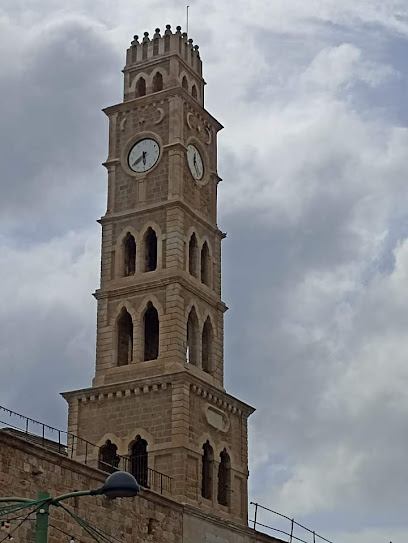
Underground Prisoners Museum
Discover the haunting tales of resistance and resilience at the Underground Prisoners Museum in Acre, a journey through Israel's complex history.
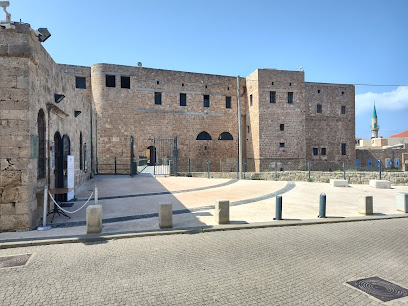
Akko Old City Waterfront Wall
Discover the Akko Old City Waterfront Wall, a UNESCO World Heritage site rich in history, stunning views, and architectural beauty along the Mediterranean coast.
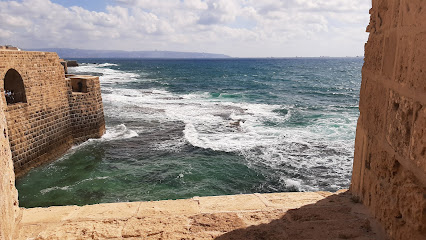
The Efendi Hotel
Experience luxury and history at The Efendi Hotel, a unique haven in Acre, combining Ottoman charm with modern comforts for an unforgettable stay.

Walls of Acre
Explore the magnificent Walls of Acre, a UNESCO World Heritage site showcasing rich history and stunning Mediterranean views in Israel.
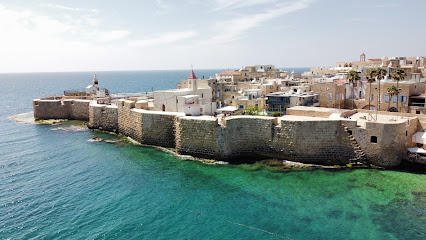
Old Akko Walls
Discover the ancient beauty of the Old Akko Walls, a historical landmark that tells the story of Acre's rich heritage along the Mediterranean coast.
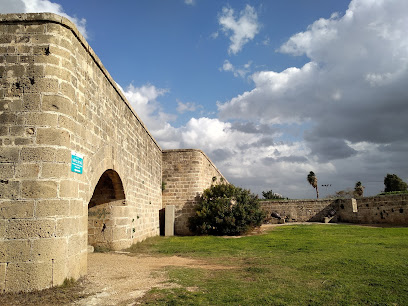
פלאפל שמסייה
Discover the culinary treasures of Acre, Israel, where authentic falafel and rich history converge in a vibrant coastal city.
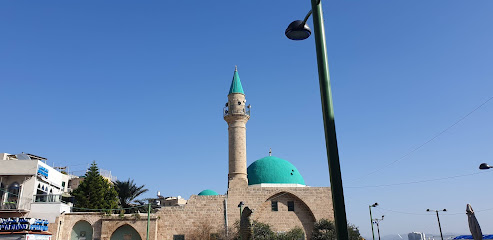
עכוטל AKKOTEL
Experience the charm of Acre at Akkotel, a historic hotel offering stunning Mediterranean views and easy access to local attractions.

Acre Visitor's Center
Explore the vibrant heritage and history of Acre at the Visitor's Center, your gateway to unforgettable experiences in this ancient city.
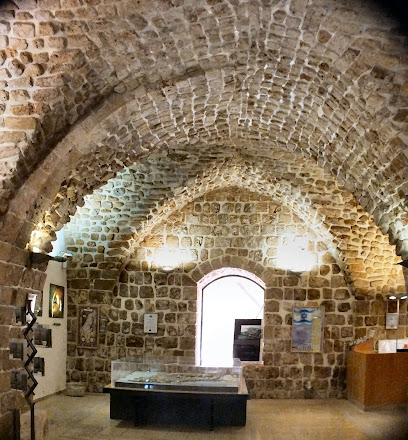
Unmissable attractions to see
Rosh HaNikra Grottoes
Discover the breathtaking Rosh HaNikra Grottoes, a stunning natural wonder along Israel's coast, offering unique sea caves and scenic beauty.
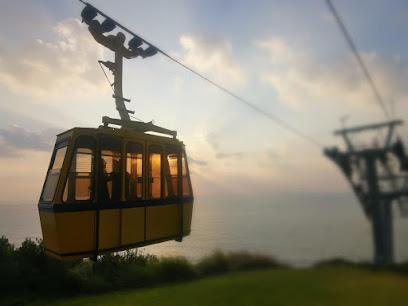
Mount Carmel National Park
Discover the breathtaking landscapes and rich biodiversity of Mount Carmel National Park in Haifa, a must-visit for nature lovers and adventure seekers alike.
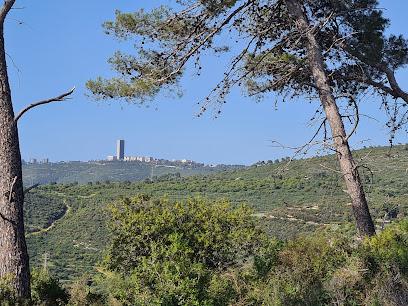
Church of the Annunciation
Experience the spiritual and historical significance of the Church of the Annunciation in Nazareth, a true gem for travelers seeking cultural immersion.
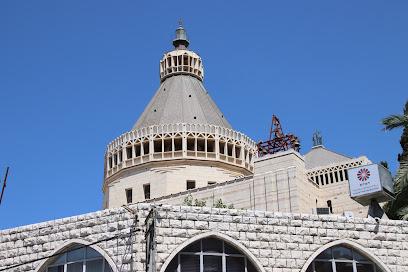
Tomb of Rabbi Meir
Discover the spiritual serenity of the Tomb of Rabbi Meir in Tiberias, a revered pilgrimage site that offers rich history and stunning views.
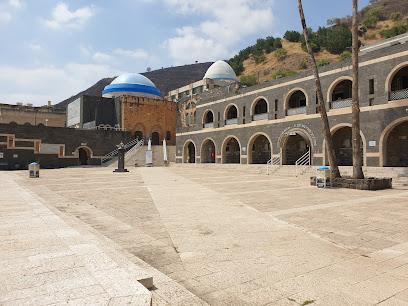
Knights' Halls, Old Akko
Discover the captivating history of the Knights' Halls in Old Akko, a UNESCO World Heritage site filled with ancient architecture and rich tales.
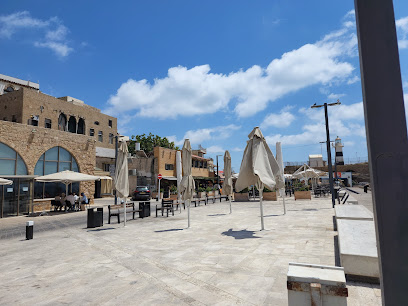
Knights' Halls, Old Akko
Discover the Knights' Halls in Old Akko: a historic landmark where ancient architecture meets rich cultural heritage, perfect for all travelers.
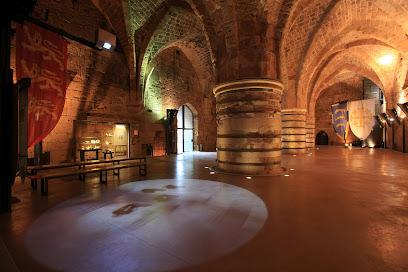
The Church of the Beatitudes
Discover tranquility and inspiration at the Church of the Beatitudes, a stunning Catholic church overlooking the serene Sea of Galilee.
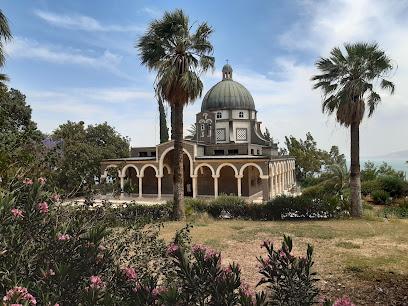
Keshet Cave
Explore Keshet Cave: A breathtaking natural wonder in Israel offering stunning views, hiking adventures, and rich history for every nature lover.
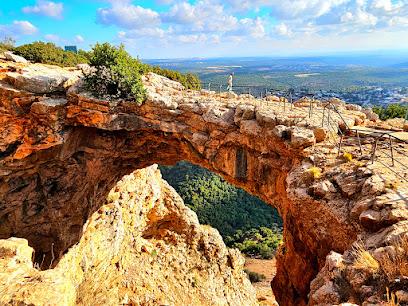
Hamat Tiberias National Park
Explore the serene beauty and rich history of Hamat Tiberias National Park, a perfect getaway by the Sea of Galilee.
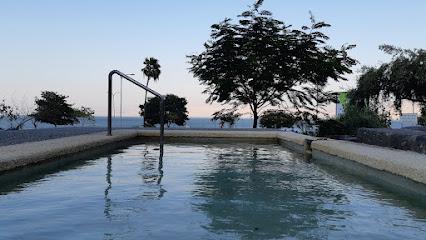
En Afek
Explore the breathtaking beauty of En Afek National Reserve, a tranquil escape with lush landscapes and rich biodiversity in Kiryat Bialik.
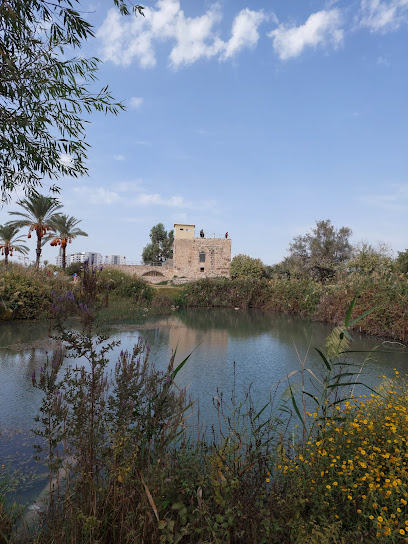
Bet She'arim National Park
Experience the rich history and stunning landscapes of Bet She'arim National Park in Kiryat Tiv'on, a perfect blend of nature and ancient archaeology.
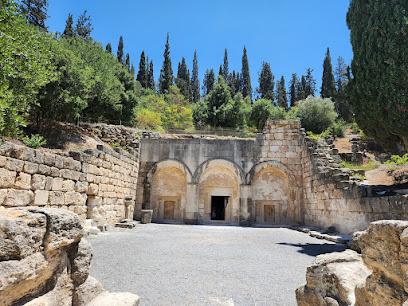
The Tomb Site of the Rambam
Discover the sacred Tomb Site of the Rambam in Tiberias, a tranquil pilgrimage destination rich in Jewish heritage and stunning natural beauty.
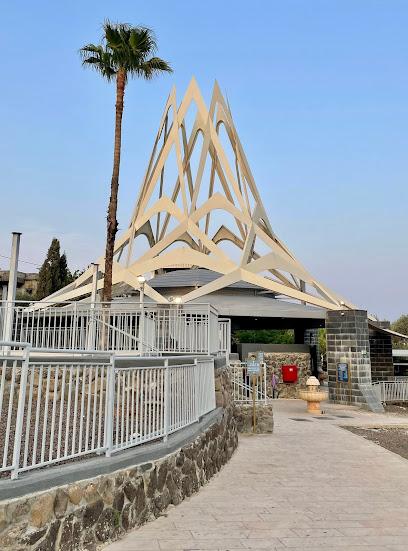
Templar's Tunnel
Uncover the historical secrets of Templar's Tunnel in Acre, a fascinating journey through the ancient passageways of the Crusaders.
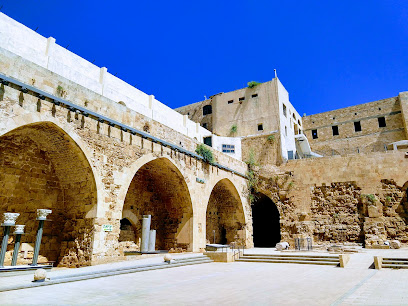
Templar's Tunnel
Discover the historic Templar's Tunnel in Acre, a fascinating journey through the Crusader era and a significant archaeological treasure.
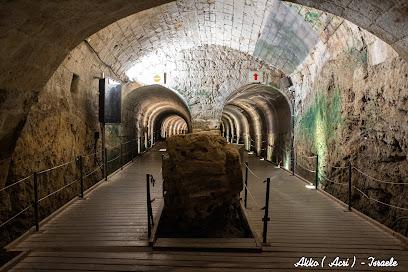
Stella Maris Monastery
Explore the serene beauty and spiritual heritage of Stella Maris Monastery, a must-visit attraction in Haifa offering stunning views and rich history.
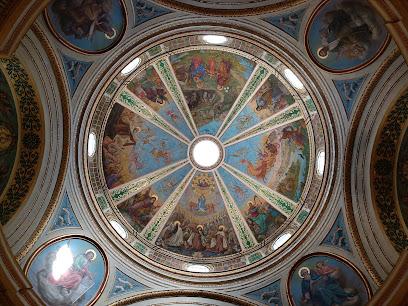
Essential places to dine
Uri Buri
Experience exquisite seafood dining at Uri Buri in Acre, where fresh ingredients meet stunning Mediterranean views.
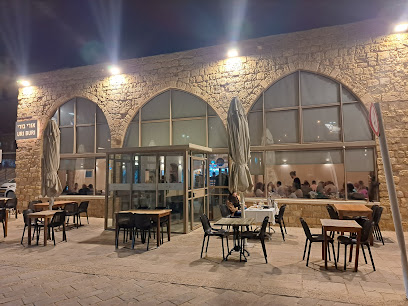
Restaurant Doniana
Savor authentic Mediterranean flavors at Restaurant Doniana in Acre – where tradition meets taste.
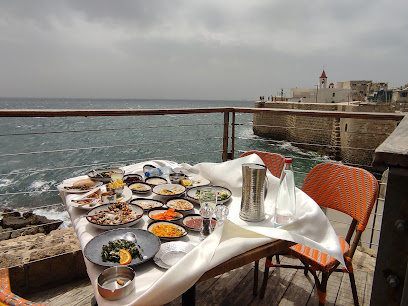
Hummus Said
Discover Hummus Said in Acre: A culinary delight featuring authentic Middle Eastern dishes that capture the essence of local flavors.
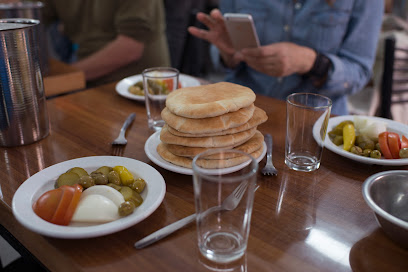
El Marsa Restaurant מסעדת אל מרסא
Experience exquisite seafood dining at El Marsa Restaurant in Acre – where fresh flavors meet breathtaking coastal views.
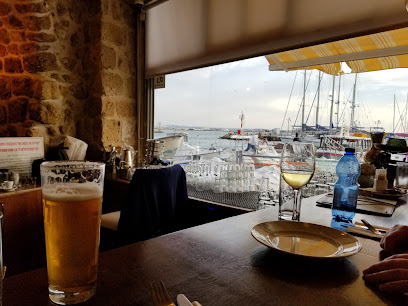
Abu Christo
Experience authentic Mediterranean cuisine at Abu Christo in Akko – where every dish tells a story.
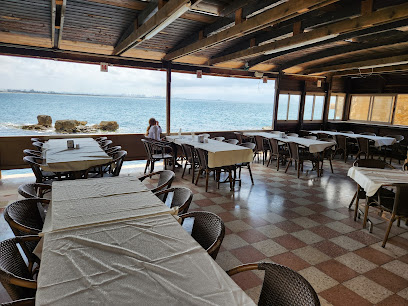
Roots רותס
Experience exquisite kosher dining at Roots רותס in Acre, where tradition meets modern culinary artistry amidst a charming atmosphere.
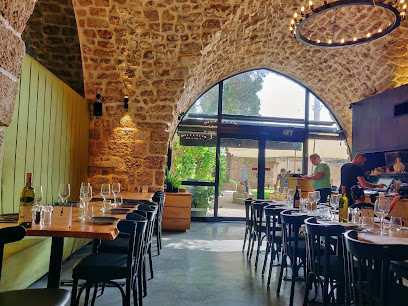
The Bread And Fish
Discover authentic Israeli flavors at The Bread And Fish in Acre - where every meal tells a story!
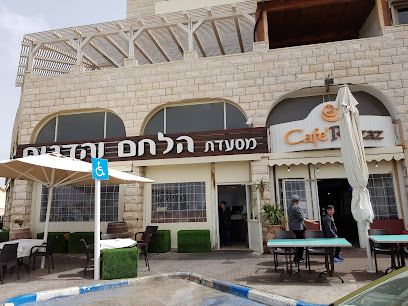
מסעדת חמודי
Experience authentic Middle Eastern flavors at Hmudi Restaurant in Acre - where culinary tradition meets modern dining.
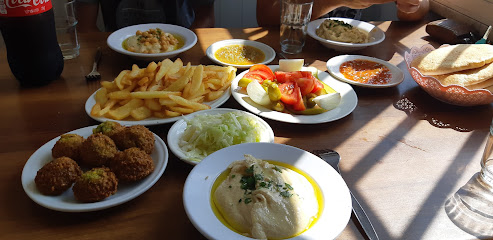
Al Fanar cafe
Discover delectable breakfasts and stunning sea views at Al Fanar Cafe in historic Acre - a must-visit destination for food lovers.
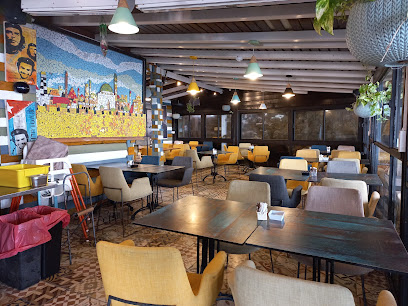
MINA
Experience the vibrant culinary scene at MINA in Acre – where tradition meets modern flavor in every bite.
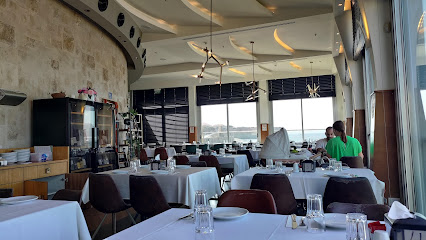
קונטואר
Discover the authentic tastes of Israel at Kontur in Acre - where culinary tradition meets modern flair.
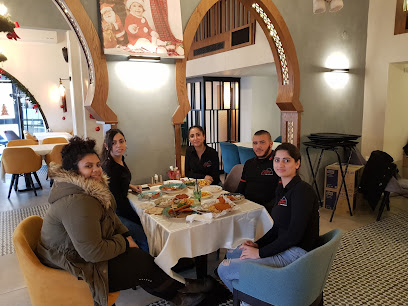
Turkiz acre
Experience exquisite seafood and breathtaking views at Turkiz Acre, where culinary tradition meets coastal charm in historic Israel.
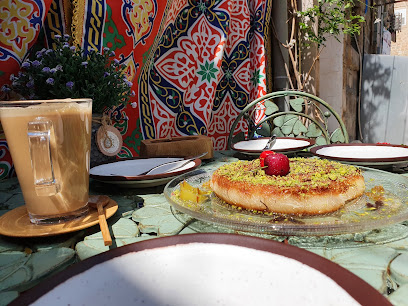
Uno
Experience the best of Mediterranean and Italian cuisine at Uno in Acre, where every meal is a celebration of flavor and tradition.
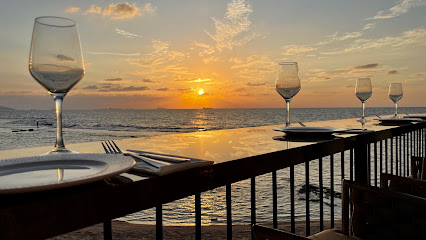
Panorama Restaurant Acre
Experience breathtaking views and exquisite local cuisine at Panorama Restaurant in Acre, where every meal is a celebration of Mediterranean flavors.
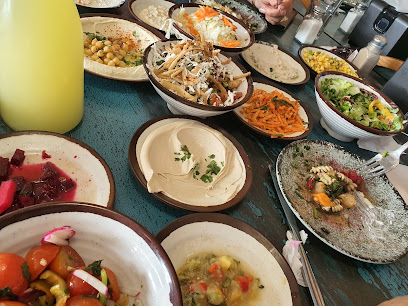
Fishers' Restaurant מסעדת הדייגים
Discover fresh seafood delights at Fishers' Restaurant in Acre, where culinary excellence meets stunning Mediterranean views.
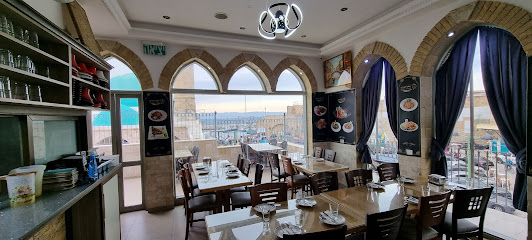
Markets, malls and hidden boutiques
Acre Market
Discover the lively Acre Market, a cultural treasure trove in Israel offering fresh produce, spices, and unique handcrafted goods.
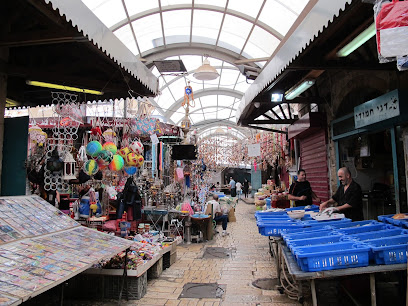
Azrieli Akko
Experience the best of shopping and culture at Azrieli Akko, a modern mall in the historic city of Acre, Israel.
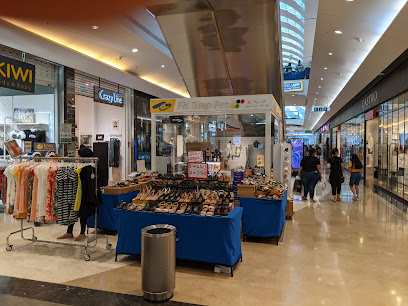
היסטריה
Experience the magic of play at היסטריה, a toy store in Acre offering a delightful selection of toys, baby products, and irresistible candies for all ages.
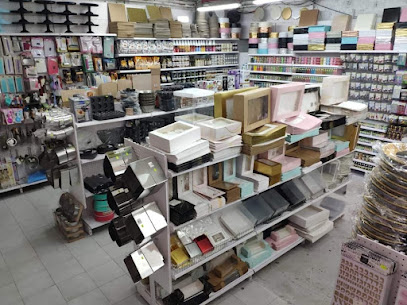
קינג סטור עכו | المشهداوي عكا
Explore the flavors of Acre at King Store, where local ingredients and culinary treasures await every visitor.
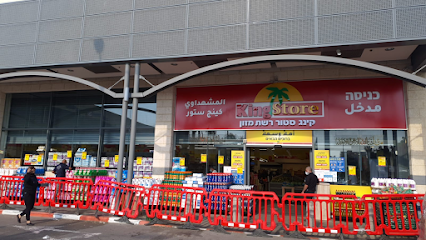
The White Market
Experience the vibrant culture and unique shopping of The White Market in Acre, where local crafts and delicious cuisine await every visitor.
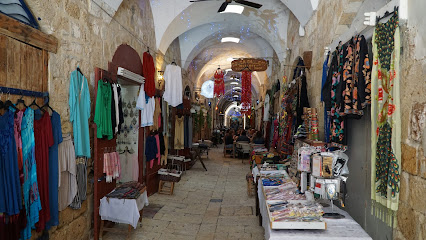
Duck You Akko
Discover Duck You Akko, a whimsical toy store in Acre, Israel, specializing in unique duck-themed toys and delightful novelties for all ages.
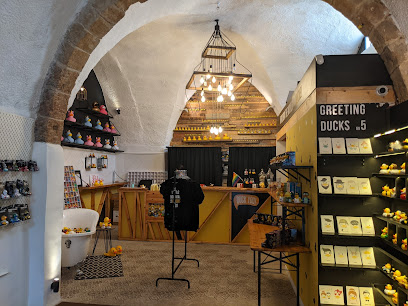
תפילין לבר מצווה מהודרים תשמישי קדושה
Discover a treasure trove of Judaica and religious goods in Acre's charming religious goods store, perfect for gifts and personal keepsakes.
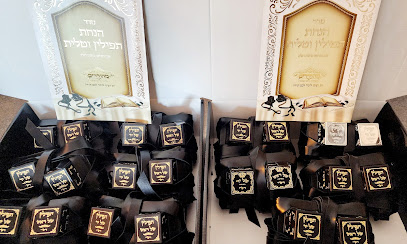
מרקט ניסן
Explore the vibrant מרקט ניסן in Acre, where local flavors and fresh produce await your discovery in a charming grocery store setting.
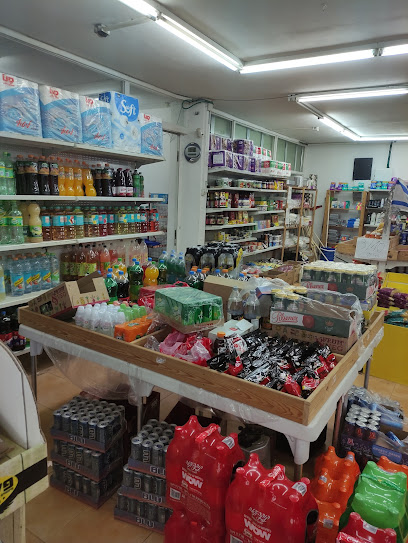
בצק סוכר
Discover the delicious world of בצק סוכר in Acre, where local flavors and sweet treats come together for a delightful shopping experience.
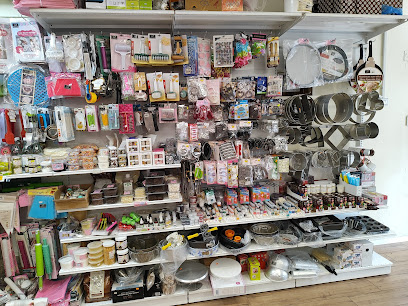
פט-פיש מרקט (המרקט למחמד)
Explore the Pet-Fish Market in Acre, a vibrant hub for animal lovers and farmers, offering unique products and local charm.
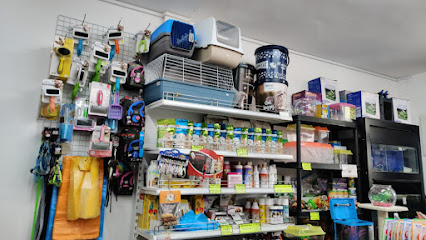
קניון עכו
Experience shopping and dining at the Akko Shopping Mall in Acre, where modern retail meets historic charm in Israel.
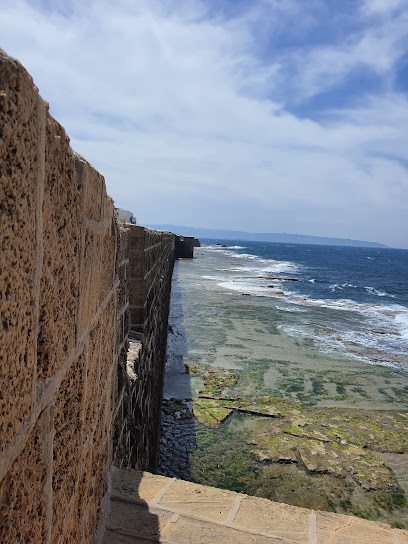
• CANNA SMOKE •
Experience the finest in cigars and vaporizers at CANNA SMOKE, Acre's premier tobacco shop, where quality meets tradition.
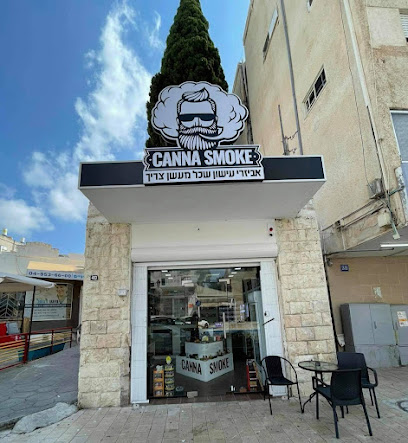
Grano akko
Discover the rich flavors of Acre at Grano Akko, a bakery where tradition meets taste in every delicious bite.
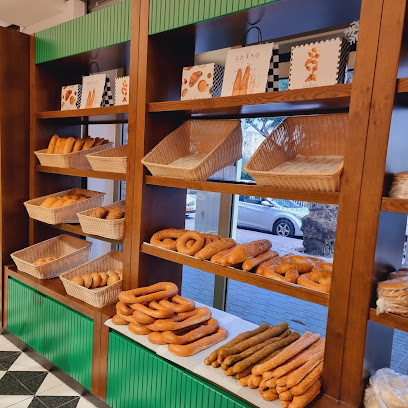
בלי עין הרע
Experience the joy of shopping for your little ones at בלי עין הרע, a charming baby store in the historic city of Acre, Israel.

Mina - old city market
Discover the rich flavors and vibrant culture at Mina - Old City Market in Acre, a must-visit destination for food lovers and cultural enthusiasts.
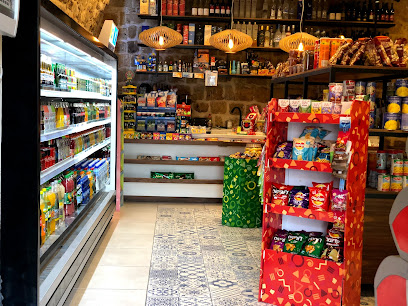
Essential bars & hidden hideouts
Uri Buri
Discover Uri Buri, a premier seafood restaurant in Acre, offering fresh Mediterranean dishes and stunning sea views for an unforgettable dining experience.
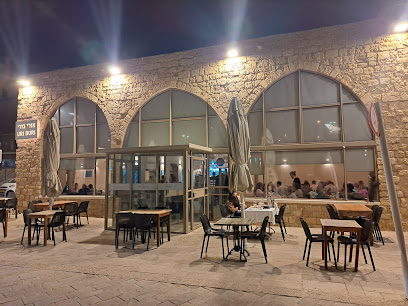
Hummus Said
Discover the authentic taste of the Middle East at Hummus Said in Acre, where every bite is a celebration of flavor and tradition.
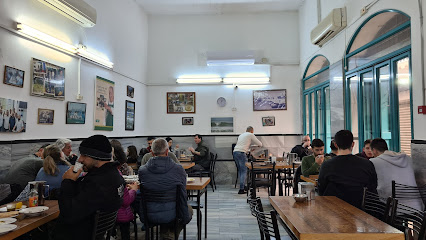
Abu Christo
Discover the flavors of Middle Eastern cuisine at Abu Christo, a must-visit restaurant in Kafr Yasif, blending tradition with modern culinary excellence.
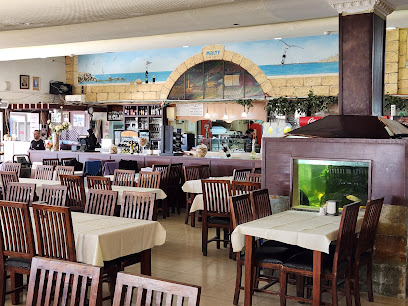
Roots רותס
Discover the culinary delights of Roots in Acre, where tradition meets modern cuisine in a vibrant atmosphere.
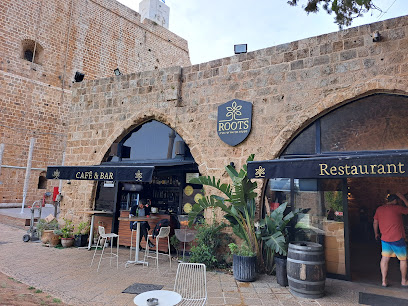
The Bread And Fish
Experience the best of Israeli cuisine at The Bread And Fish in Acre, where tradition meets flavor in a delightful dining atmosphere.
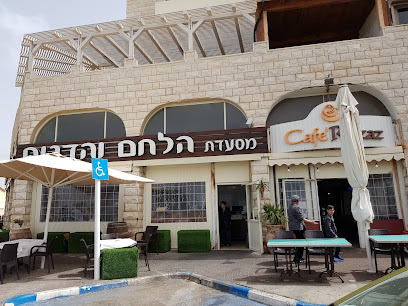
Al Fanar cafe
Experience the best of Acre at Al Fanar Cafe, where delicious breakfasts meet stunning Mediterranean views in a welcoming atmosphere.
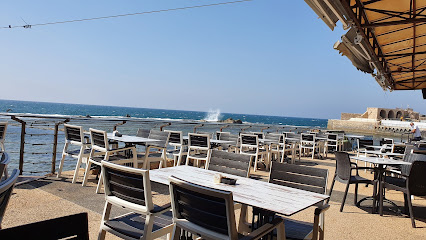
MINA
Discover the vibrant culinary scene at MINA, Acre's premier restaurant serving fresh, local dishes with a modern twist.
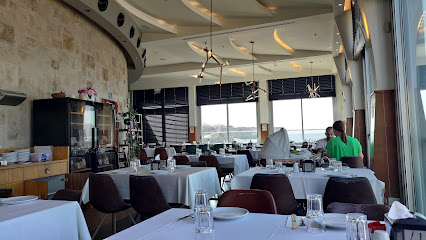
Fishers' Restaurant מסעדת הדייגים
Experience the taste of the Mediterranean at Fishers' Restaurant in Acre, where fresh seafood meets stunning sea views.
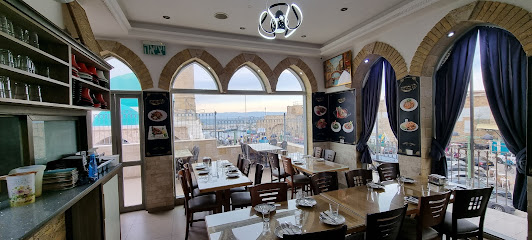
Siran Restaurant
Discover the flavors of Acre at Siran Restaurant, where tradition meets modern Israeli cuisine in a charming atmosphere.
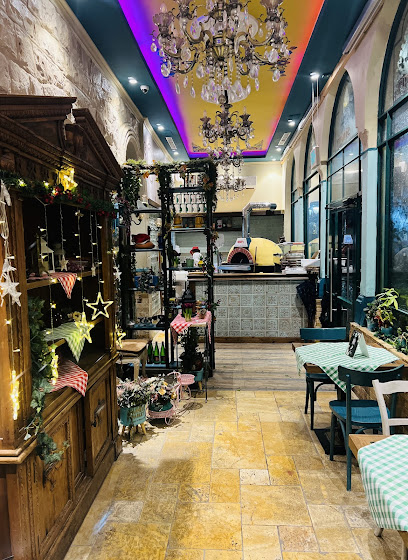
פלאפל שמסייה
Discover the authentic taste of Acre with mouthwatering falafel at Falafel Shamsiya, a culinary experience you won't want to miss.
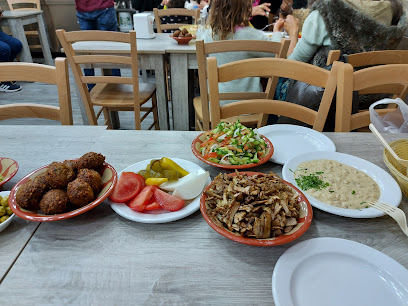
Hummus Al-Abed Abu Hamid
Discover the authentic taste of Acre at Hummus Al-Abed Abu Hamid, where tradition meets flavor in every bite.
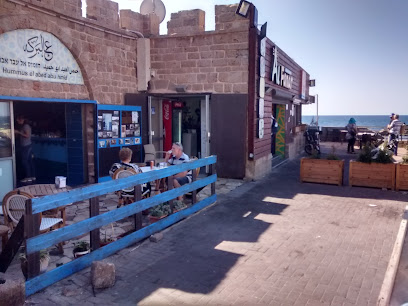
סול בורגר בר - soul burger bar
Experience the best gourmet burgers in Acre at Soul Burger Bar, where flavor meets local charm and culinary creativity.
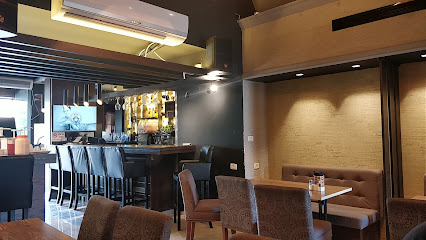
Marsa Bar מרסא בר
Experience the vibrant nightlife of Acre at Marsa Bar, where local flavors and stunning sea views await every visitor.
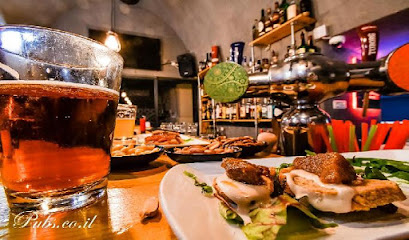
BAR 11
Discover the lively nightlife of Acre at BAR 11, a premier live music bar offering unforgettable performances and a vibrant atmosphere.
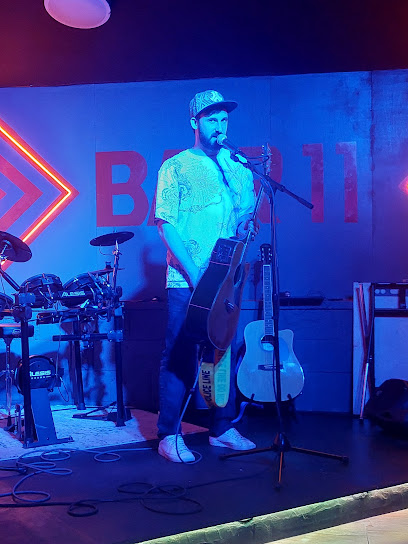
Local Phrases
-
- Helloשָׁלוֹם
[Shalom] - Goodbyeלְהִתְרָאוֹת
[Lehitraot] - Yesכֵּן
[Ken] - Noלֹא
[Lo] - Please/You're welcomeבבקשה
[Bevakasha] - Thank youתּוֹדָה
[Toda] - Excuse me/Sorryסְלִיחָה
[Slicha] - How are you?אֵיך אַתָּה?
[Eich atah?] - Fine. And you?טוֹב. וְאַתָּה?
[Tov. Ve'atah?] - Do you speak English?הֲאַתָּה מְדַבֵּר אַנְגְלִית?
[Ha'atah medaber anglit?] - I don't understandאֲנִי לֹא מֵבִין
[Ani lo mevin]
- Helloשָׁלוֹם
-
- I'd like to see the menu, pleaseאֲנִי רוֹצֶה לִרְאוֹת אֶת הַתַפְרִיט, בְּבַקָשָה
[Ani rotseh lir'ot et hatafrit, bevakasha] - I don't eat meatאֲנִי לֹא אוֹכֵל בָּשָר
[Ani lo ochel basar] - Cheers!לְחַיִּים
[L'chaim] - I would like to pay, pleaseאֲנִי רוֹצֶה לְשַלֵם, בְּבַקָשָה
[Ani rotseh le'shalem, bevakasha]
- I'd like to see the menu, pleaseאֲנִי רוֹצֶה לִרְאוֹת אֶת הַתַפְרִיט, בְּבַקָשָה
-
- Help!עֶזְרָה!
[Ezra!] - Go away!לְךָ הַלְאָה!
[Lecha hal'ah!] - Call the Police!קְרָא לַמִּשְׁטָרָה!
[Kra la'mishtara!] - Call a doctor!קְרָא לַרוֹפֵא!
[Kra la'rofe] - I'm lostאֲנִי אָבוּד
[Ani avud] - I'm illאֲנִי חוֹלֶה
[Ani holeh]
- Help!עֶזְרָה!
-
- I'd like to buy...אֲנִי רוֹצֶה לִקְנוֹת...
[Ani rotseh liknot...] - I'm just lookingאֲנִי רַק מְסַתֵכֵל
[Ani rak m'satekel] - How much is it?כַּמָה זֶה עוֹלֶה?
[Kama ze oleh?] - That's too expensiveזֶה יָקָר מְדַי
[Ze yakar medai] - Can you lower the price?הֲאַתָּה יָכוֹל לְהוֹרִיד אֶת הַמְחִיר?
[Ha'atah yachol lehorid et hamchir?]
- I'd like to buy...אֲנִי רוֹצֶה לִקְנוֹת...
-
- What time is it?מַה הַשָּׁעָה?
[Ma hashaa?] - It's one o'clockזֶה חָד־בּוֹקֶר
[Ze chad-boqer] - Half past (10)חֲצֵי (עֶשֶׂר)
[Chatzi (eser)] - Morningבֹּקֶר
[Boqer] - Afternoonצָהֳרַיִם
[Tzohorayim] - Eveningעֶרֶב
[Erev] - Yesterdayאֶתְמוֹל
[Etmol] - Todayהַיוֹם
[Hayom] - Tomorrowמָחָר
[Machar] - 1אֶחָד
[Ehad] - 2שְׁנַיִם
[Shnayim] - 3שָׁלֹשׁ
[Shalosh] - 4אַרְבָּעָה
[Arba'a] - 5חֲמִשָּׁה
[Chamishah] - 6שִׁשָּׁה
[Shishah] - 7שִׁבְעָה
[Shiv'ah] - 8שְׁמוֹנָה
[Shmonah] - 9תִּשְׁעָה
[Tish'ah] - 10עֲשָׂרָה
[Asarah]
- What time is it?מַה הַשָּׁעָה?
-
- Where's a/the...?אֵיפֹה נָמֶצַא...
[Eifo nametza...] - What's the address?מַה הַכְּתוֹבֶת?
[Ma haktove] - Can you show me (on the map)?הֲאַתָּה יָכוֹל לְהַרְאוֹת לִי (עַל הַמַפָּה)?
[Ha'atah yachol leharot li (al hama'pa)?] - When's the next (bus)?מָתַי הַאִם הַבּוּס הַבָּא?
[Matai ha'im habus haba?] - A ticket (to ....)כִּרְטִיס (לְ....)
[Kartis (le....)]
- Where's a/the...?אֵיפֹה נָמֶצַא...
History of Akko
-
Akko, also known as Acre, boasts a history that dates back to the Bronze Age. Strategically located on the coast of the Mediterranean Sea, it served as a vital port city for various ancient civilizations, including the Canaanites and Phoenicians. The city's ancient roots are evidenced by archaeological finds such as pottery, tools, and remnants of ancient fortifications.
-
During the Hellenistic period, following the conquests of Alexander the Great, Akko became a significant urban center. It was later incorporated into the Roman Empire, where it thrived as a bustling port and commercial hub. Roman architecture, including aqueducts and public buildings, marked the city's landscape. The Roman influence is still evident in the city's ruins and historical sites.
-
The Crusader period was a transformative era for Akko. Captured by the Crusaders in 1104, the city was fortified and became a pivotal stronghold in the Kingdom of Jerusalem. Akko served as a major base for Crusader operations and a gateway to the Holy Land. The remnants of Crusader architecture, such as the Knights Halls and fortified walls, are among the city's most notable historical attractions.
-
After the fall of the Crusader Kingdom, Akko came under Mamluk control in 1291. The city was subsequently rebuilt and served as a vital administrative and military center. Later, during the Ottoman period, Akko experienced a resurgence under the leadership of rulers like Ahmed al-Jazzar. The Ottomans fortified the city further and expanded its infrastructure, leaving behind impressive structures like the Al-Jazzar Mosque and the Ottoman Citadel.
-
During the British Mandate period in the early 20th century, Akko played a significant role in the political and social developments of the region. The city's prison was famously used to detain Jewish underground fighters. Following the establishment of the State of Israel in 1948, Akko became part of the new nation. Today, it is a vibrant city that blends its rich historical heritage with a diverse modern culture, attracting tourists from around the world.
Akko Essentials
-
Akko, also known as Acre, is located in northern Israel along the Mediterranean coast. The nearest major airport is Ben Gurion International Airport in Tel Aviv, approximately 120 kilometers away. From Tel Aviv, you can take a train directly to Akko, which takes around 1.5 to 2 hours. Alternatively, buses and taxis are available for travel from major cities like Tel Aviv and Haifa to Akko.
-
Akko is a compact city, and many of its major attractions are within walking distance of each other. For longer distances within the city, local buses and taxis are readily available. The train station is conveniently located and connects to other major cities in Israel. Renting a car can also be a good option if you plan to explore surrounding areas.
-
The official currency in Israel is the New Israeli Shekel (NIS). Credit cards are widely accepted in most hotels, restaurants, and shops in Akko. However, it is advisable to carry some cash for smaller establishments and street vendors. ATMs are widely available throughout the city.
-
Akko is generally a safe city for tourists. However, as with any travel destination, it is important to take standard precautions. Avoid walking alone at night in unfamiliar areas and keep an eye on your belongings in crowded places. There are no specific high-crime areas targeting tourists, but staying vigilant is always recommended.
-
In case of an emergency, dial 100 for police, 101 for medical emergencies, and 102 for fire services. The local hospital and medical facilities in Akko are equipped to handle emergencies. It is recommended to have travel insurance that covers medical emergencies. Pharmacies are also available for minor health issues and over-the-counter medications.
-
Fashion: Do dress modestly, especially when visiting religious sites. Avoid wearing overly revealing clothing. Religion: Do respect local customs and traditions. Be mindful when visiting synagogues, mosques, and churches. Public Transport: Do be respectful of other passengers. Don't eat or drink on public transport. Greetings: Do greet people with a friendly 'Shalom' (hello). Eating & Drinking: Do try local delicacies and be gracious when offered food. Don't refuse hospitality, as it is considered impolite.
-
To experience Akko like a local, visit the bustling local markets where you can buy fresh produce and traditional Israeli goods. Engage with locals, as they are often friendly and willing to share stories about Akko's rich history and culture. Don't miss visiting the Old City, the Knights' Halls, and the Al-Jazzar Mosque. For a unique experience, take a boat ride in the Mediterranean Sea to see Akko from a different perspective.
Trending Landmark in Akko
Nearby Cities to Akko
-
Things To Do in Acre
-
Things To Do in Nahariya
-
Things To Do in Haifa
-
Things To Do in Rosh HaNikra
-
Things To Do in Nazareth
-
Things To Do in Safed
-
Things To Do in Zikhron Ya'akov
-
Things To Do in Tyre
-
Things To Do in Tiberias
-
Things To Do in Caesarea
-
Things To Do in Hadera
-
Things To Do in Beit She'an
-
Things To Do in Umm Qais
-
Things To Do in Marjayoun
-
Things To Do in Netanya

















